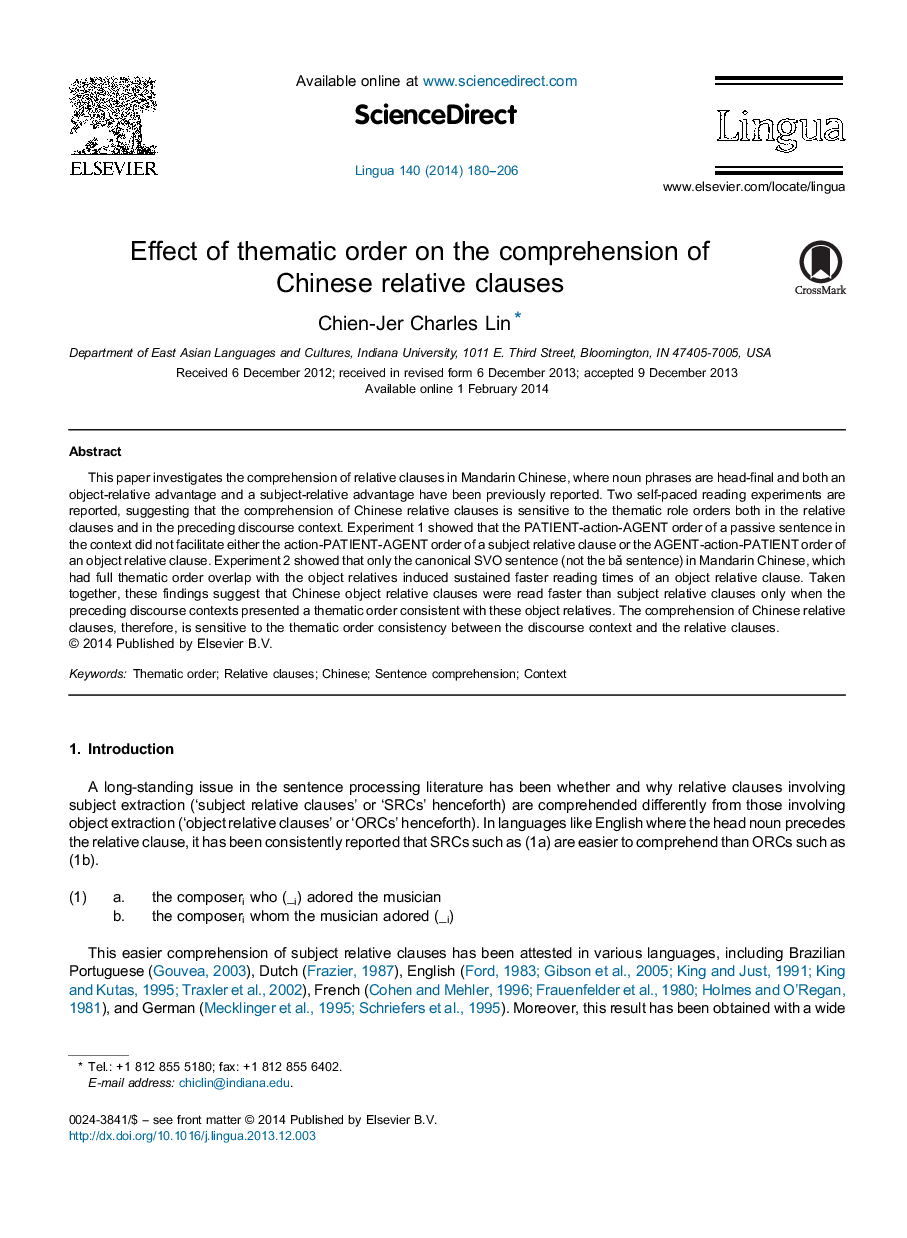| Article ID | Journal | Published Year | Pages | File Type |
|---|---|---|---|---|
| 935598 | Lingua | 2014 | 27 Pages |
Abstract
This paper investigates the comprehension of relative clauses in Mandarin Chinese, where noun phrases are head-final and both an object-relative advantage and a subject-relative advantage have been previously reported. Two self-paced reading experiments are reported, suggesting that the comprehension of Chinese relative clauses is sensitive to the thematic role orders both in the relative clauses and in the preceding discourse context. Experiment 1 showed that the PATIENT-action-AGENT order of a passive sentence in the context did not facilitate either the action-PATIENT-AGENT order of a subject relative clause or the AGENT-action-PATIENT order of an object relative clause. Experiment 2 showed that only the canonical SVO sentence (not the bÇ sentence) in Mandarin Chinese, which had full thematic order overlap with the object relatives induced sustained faster reading times of an object relative clause. Taken together, these findings suggest that Chinese object relative clauses were read faster than subject relative clauses only when the preceding discourse contexts presented a thematic order consistent with these object relatives. The comprehension of Chinese relative clauses, therefore, is sensitive to the thematic order consistency between the discourse context and the relative clauses.
Related Topics
Social Sciences and Humanities
Arts and Humanities
Language and Linguistics
Authors
Chien-Jer Charles Lin,
